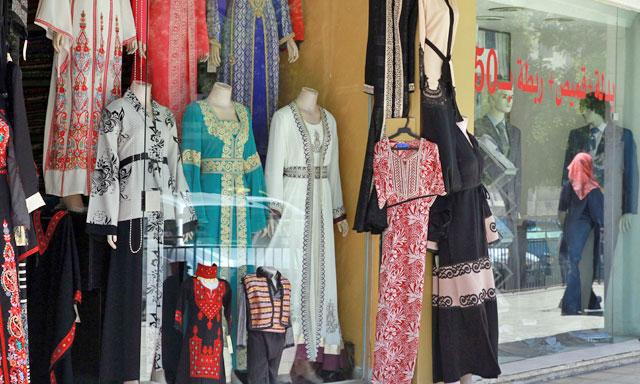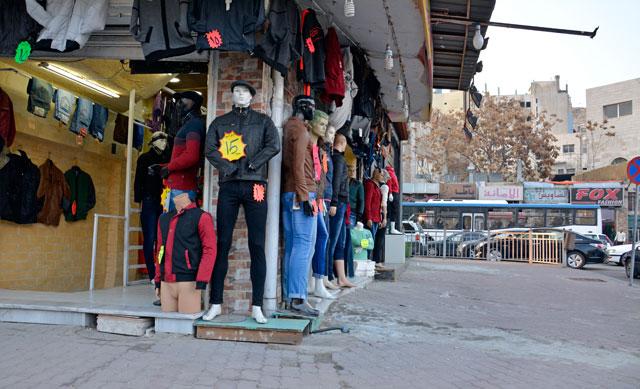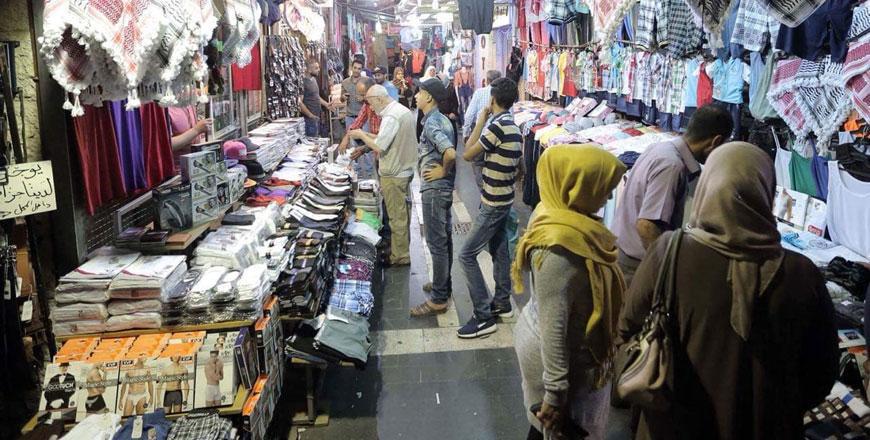You are here
Clothing sales plunge to a new low
By Bahaa Al Deen Al Nawas - Aug 15,2019 - Last updated at Aug 15,2019

Due to a decrease in sales, the prices of clothes are at their lowest since the beginning of this year (JT file photo)
AMMAN — Clothing sales during Eid Al Adha went down by 50 per cent compared to the same period in 2018. The decrease is larger compared to previous years as the sales drop accumulated over the years, a sector leader told The Jordan Times on Thursday.
President of the Textile and Readymade Clothes Syndicate Muneer Deyeh said that the figures were “shocking” even in regards to the challenges that the sector faced over the past few years, especially the very low demand during June and July this year.
“It was expected that demand would increase during the holiday compared to the previous months, and especially since school is going to start soon, but that was not the case,” he said.
The syndicate has contacted the government many times to voice the challenges the sector faces, but to no avail, Deyeh said, noting that the prices of clothes since the beginning of this year were at their lowest, and if this continues, it means many shops will be closing, “one after another”.
Earlier in July, Deyeh outlined taxes imposed on imported clothing: 20 per cent in customs fees, 16 per cent in sales tax, 5 per cent in customs duties, 2 per cent in income tax and 1.5 per cent in miscellaneous taxes, and the same costs apply to shoes, except for customs fees, which are 30 per cent instead of 20 per cent.
He said Jordan’s taxes and customs on clothing and shoe imports are “the highest not only in the region but also in the whole world.”
The sector also faces challenges related to unorganised e-commerce sales. The government said in July that it is studying ways to regulate these trades in order to mitigate losses to traditional shops.
Asaad Qawasmi, a representative of the clothes, garment and jewellery sector at the Jordan Chamber of Commerce, told The Jordan Times in mid-July that Prime Ministry regulations allow anyone with a passport and a national identification number to order up to five packages totalling JD200 a month, which enter the Kingdom exempt from customs.
However, some people abuse these regulations and use friends’ passports to order goods without having to pay extra customs or taxes, and then sell these goods at low prices, Qawasmi claimed, adding that this is an illegal form of trade known as “mail package” trade.
In light of all these challenges, Deyeh repeated his call for the government to “take action before this vital sector faces even more grave losses”, causing shops to close, their owners to go bankrupt and the employees to lose their jobs.
Related Articles
AMMAN — The government is currently studying how to better regulate e-commerce to mitigate losses to traditional brick-and-mortar shops, a m
AMMAN — Many clothing and shoe shops are expected to shut down in the upcoming period due to “the unprecedented lack of demand as well as th
AMMAN — The Textile and Readymade Clothes Syndicate has called on the government to reduce taxes and customs on children's clothes and shoes


















